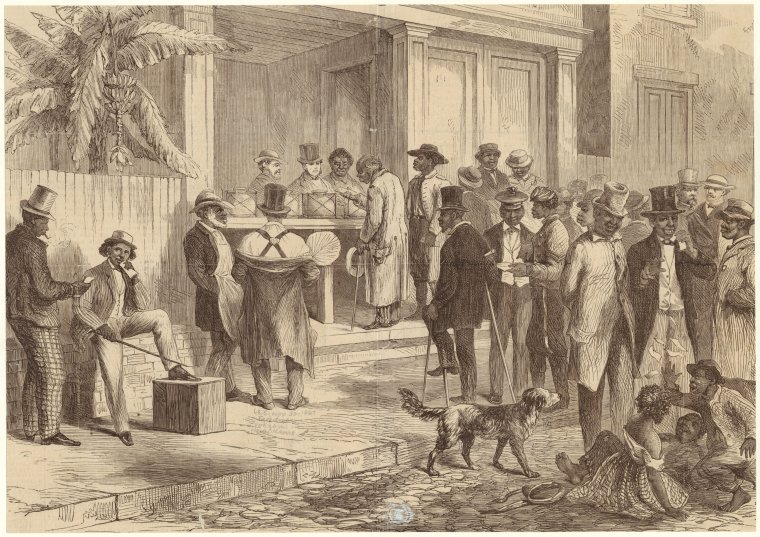United States
United States: The Fourth of July -- theirs and ours

By Dimitris Fasfalis
Review: Invaluable history, important lessons from Barry Sheppard

The Party, The Socialist Workers Party 1960-1988, Volume I: The Sixties, a Political Memoir by Barry Sheppard, Resistance Books (Sydney), 2005, 354 pages.
The Party, The Socialist Workers Party 1960-1988, Volume II: Interregnum, Decline and Collapse, 1973-1988, a Political Memoir by Barry Sheppard, Resistance Books (London), 2012, 345 pages.
[For more discussion of the US SWP, click HERE.]
By Malik Miah
William D. Haywood—Soldier to the Last, by James P. Cannon (1928)
“William D. Haywood—Soldier to the Last” by James P. Cannon (Daily Worker, May 22, 1928) is a heartfelt obituary of the IWW leader William “Big Bill” Haywood by a friend and comrade, James P.
United States: Minnesota’s communist mayor
By Pamela A. Brunfelt
United States: Far right and Republicans attempt roll back of constitutional equal rights

Former enslaved African Americans vote in New Orleans, 1867, during the "Radical Reconstruction" period.
By Malik Miah
May 25, 2012 – Links International Journal of Socialist Renewal -- The “Reconstruction amendments” — the 13th, 14th and 15th amendments to the United States constitution — are being targeted in many of the far-right “Tea Party” and Republican campaigns against the rights of immigrants and women, marriage equality and gay rights, and voting rights for African Americans and other minority ethnic groups.
The racist tinge of many of these attacks, whether openly stated or implied, is obvious – but this does not mean that racism is more prevalent now than in the past. Rather, the smear campaign against President Barack Obama’s mixed background and dark skin is calculated to appeal to the most extreme backward elements of the Republican Party.
Message from SYRIZA to Chicago anti-NATO protests + photos, videos: massive, conscious, determined

Demonstrators defy Chicago police during anti-NATO protest march in Chicago, May 19, 2012.
By Antonis Davanellos and Sotiris Martalis, members of the coordinating secretariat of SYRIZA
May 20, 2012
Dear comrades, dear brothers and sisters of the anti-war movement
We salute your mobilisations against the NATO Summit [in Chicago] and we send you our solidarity from Greece.
We don’t need to say much about the reasons to raise our voices against NATO. Millions of people are familiar with its record or crimes over the last years in the Balkans, in Iraq, in Afghanistan, in Libya to name just a few.
And if we look further back, NATO has provided nothing but wars, dictatorships and terror around the globe, from the day it was founded, and during all the years of its existence.
Who or what killed the US SWP?

The Party, The Socialist Workers Party 1960-1988, Volume I: The Sixties, a Political Memoir by Barry Sheppard, Resistance Books (Sydney), 2005, 354 pages.
The Party, The Socialist Workers Party 1960-1988, Volume II: Interregnum, Decline and Collapse, 1973-1988, a Political Memoir by Barry Sheppard, Resistance Books (London), 2012, 345 pages.
[For more discussion of the US SWP, click HERE.]
Review by Peter Boyle
Peter Camejo: Against sectarianism -- the evolution of the Socialist Workers Party, 1978-1983
AGAINST SECTARIANISM
The Evolution of the Socialist Workers Party 1978-1983
by Pedro (Peter) Camejo
USA: 'Capitalism or Common Sense?' An Occupy Wall Street Class War Camp pamphlet

At the request of the author, Links International Journal of Socialist Renewal is happy to make available a new pamphlet produced by radical Occupy activists in United States, in the interests of the advancing discussion in the movement. The pamphlet can be downloaded free HERE (in PDF) or you can read it on screen below.
* * *
For more on the #Occupy movement, click here.
By Pham Binh
April 18, 2012
Occupy!
Who would’ve imagined the word “occupy” would inspire millions to take direct action and stand up for the 99% here in America after brutal occupations in Iraq, Afghanistan, and Palestine?
Now there’s Occupy Pakistan and even Occupy Nigeria.
Occupy is more than a movement, less than a revolution, and long overdue. Occupy isn’t about ideology, it’s about the 99%, hence why pacifists and insurrectionists, anti-capitalist anarchists/socialists and pro-capitalist libertarians, liberal Democrats and Ron Paul Republicans, vegans and omnivores have come together despite our differences.
Paul Le Blanc: Revolutionary organisation and the ‘Occupy moment’

Occupy Pittsburgh, October 15, 2011.
